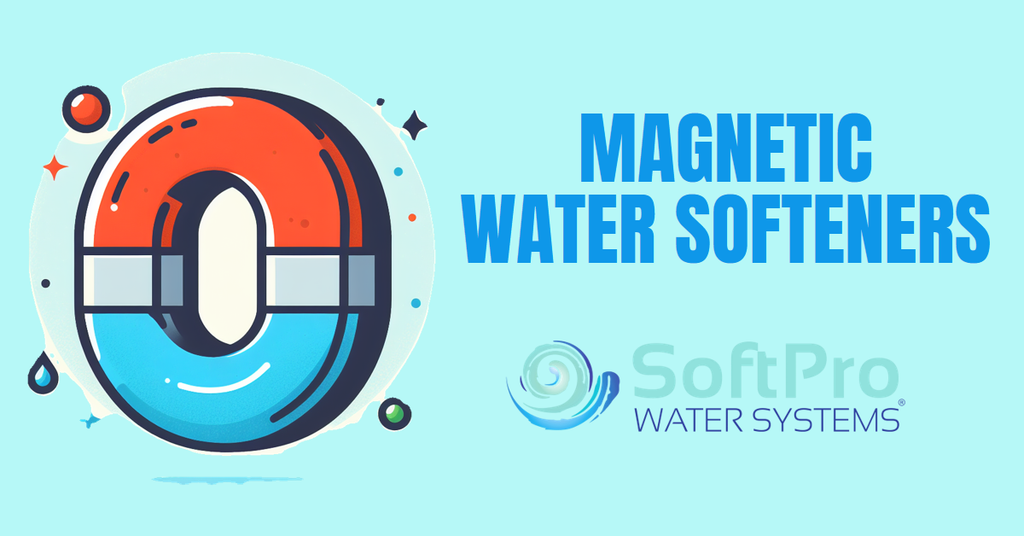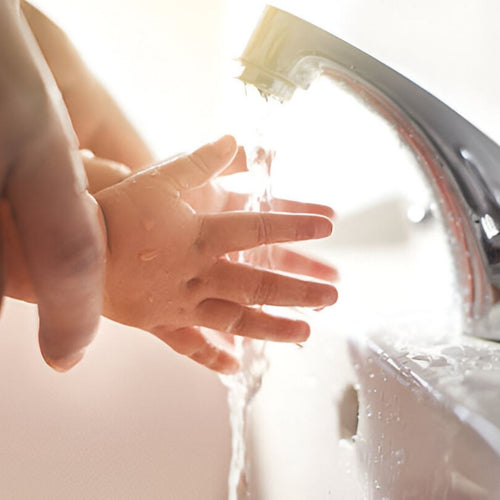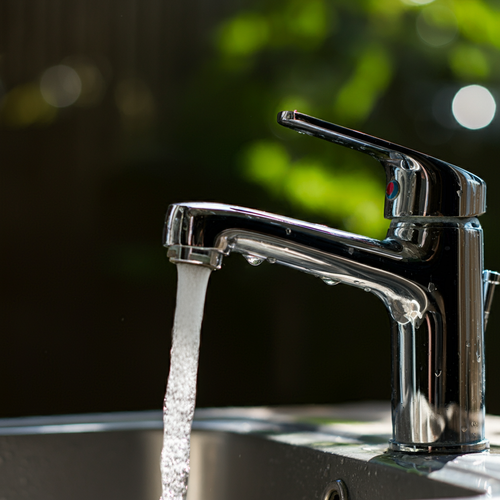What are Magnetic Water Softeners?
Magnetic water softeners are devices that claim to reduce the effects of hard water without the use of salt or chemicals. They function by passing water through a magnetic field, which is said to alter the structure of minerals like calcium and magnesium, making them less likely to form scale buildup on pipes, appliances, and fixtures.
Do Magnetic Water Softeners Work?
The effectiveness of magnetic water softeners is a subject of ongoing debate and research. While some studies and user testimonials suggest they can reduce limescale and improve water quality, other research has found limited or inconclusive evidence to support these claims.
It's important to note that the effectiveness of magnetic water softeners may vary depending on several factors, including:
- Water hardness: Magnetic water softeners may be more effective in areas with moderately hard water compared to very hard water.
- Mineral composition: The specific minerals present in the water can also influence the results.
- Individual needs and expectations: Some users may notice a more significant difference than others, depending on their water usage patterns and sensitivity to hard water effects.
How Does Magnetic Water Softening Technology Work
Proposed Mechanisms of Action:
The exact mechanism by which magnetic water softeners work is still not fully understood. Several theories have been proposed, including:
- Crystal modification: Magnetic fields may influence the crystallization process of minerals, causing them to form smaller, less-adherent crystals that are less likely to form scale.
- Ionic bonding: Some hypothesize that the magnetic field alters the ionic bonds of minerals, reducing their ability to adhere to surfaces.
- Water structuring: Magnetic fields may alter the structure of water molecules, potentially impacting how they interact with minerals and reducing their deposition.
Current Research and Limitations:
While these theories offer potential explanations, conclusive scientific evidence on the effectiveness of magnetic water softening remains limited. Some studies have shown statistically significant reductions in scale buildup, while others have shown no significant difference compared to untreated water.
It's crucial to recognize the limitations of existing research:
- Many studies have been small-scale and lacked rigorous controls.
- Research designs often vary, making comparisons difficult.
- Testing water with diverse mineral compositions is essential for conclusive results.
Transparency and Ongoing Studies:
Given the inconclusive nature of current research, transparency is crucial when considering magnetic water softeners. Users should be aware of the limited scientific evidence and potential for inconsistent results.
It's encouraging that research efforts continue. Ongoing studies aim to better understand the mechanisms of action and clarify the effectiveness of magnetic water softeners under various conditions.
Types and Models of Magnetic Water Softeners
Whole-House vs. Inline vs. Portable:
Magnetic water softeners come in various types, offering options to suit different needs and budgets:
- Whole-house systems: Installed at the main waterline, these treat all water entering the home, providing comprehensive protection from hard water effects. They tend to be the most expensive option but offer the highest level of convenience.
- Inline systems: Installed under sinks or specific appliances, these target localized problems like limescale buildup in dishwashers and washing machines. They are generally more affordable but only treat water for specific points of use.
- Portable units: These small, compact devices attach directly to faucets or hoses. They are suitable for limited applications like watering plants or treating drinking water for individual consumption. Their effectiveness may be more limited due to weaker magnetic fields.
Key Features and Specifications:
Choosing the right type of magnetic water softener requires considering features and specifications:
- Magnetic field strength: Measured in gauss, higher field strengths are claimed to offer greater effectiveness, although definitive evidence is lacking.
- Flow rate: Ensure the chosen device can handle your household's water flow without compromising pressure or performance.
- Material compatibility: Some models may not be compatible with certain pipe materials, so checking compatibility is crucial.
- Warranty and certifications: Look for models with strong warranties and any relevant certifications for quality and safety.
Brand Comparisons and User Reviews:
Researching different brands and user reviews can provide valuable insights. Consider factors like customer satisfaction, reported effectiveness, and ease of installation and maintenance.
Remember: Choosing the right type of magnetic water softener depends on your specific needs and budget. Carefully consider the available options and prioritize features relevant to your situation.
Installation and Maintenance
DIY vs. Professional Installation:
Magnetic water softeners generally require minimal to no installation depending on the type chosen:
- Whole-house systems: Often require professional installation by a qualified plumber due to their connection to the main waterline.
- Inline systems: Many are designed for DIY installation with simple attachment points beneath sinks or appliances.
- Portable units: Simply attach directly to faucets or hoses, making them readily portable and user-friendly.
Ongoing Maintenance Requirements:
Magnetic water softeners boast low maintenance needs compared to traditional salt-based systems:
- No salt or chemical refills: Eliminates the need for regular resupply and potential environmental concerns.
- Minimal cleaning: Occasional cleaning (frequency depends on model and water quality) with a damp cloth may be recommended to remove any mineral deposits.
- Durability: Magnetic water softeners typically have few moving parts and are built to last for many years.
Troubleshooting:
While magnetic water softeners are generally reliable, potential issues may arise:
- Reduced water flow: This could be due to mineral buildup within the device or incompatible pipe materials. Consult the manufacturer's instructions for troubleshooting tips.
- Lack of noticeable effect: Remember, effectiveness can vary depending on water conditions and individual expectations. Consider monitoring water quality changes over time.
Cost Considerations:
Comparing upfront costs to potential long-term savings is crucial:
- Initial cost: Magnetic water softeners tend to be more expensive upfront than traditional salt-based systems, especially whole-house models.
- Operating costs: No salt or chemical refills offer long-term savings, potentially offsetting the higher initial cost.
- Potential maintenance costs: Professional installation or repairs for complex models could add to the cost.
Pros and Cons of Magnetic Water Softeners
Benefits:
Magnetic water softeners offer several potential advantages compared to traditional salt-based systems:
- Environmentally friendly: Eliminate the need for salt, reducing environmental impact and potential contamination of waterways.
- Low maintenance: No salt refills or complex cleaning procedures required, saving time and effort.
- Cost-effective in the long run: While upfront costs may be higher, no ongoing salt expenses can lead to long-term savings.
- Chemical-free: No harsh chemicals used, making them a potentially safer option for homes with sensitive individuals or pets.
- Easy installation (for some models): DIY installation possible for inline and portable models, offering greater flexibility and potentially lower costs.
- Reduced scaling buildup: Some users report a noticeable decrease in limescale buildup around pipes, appliances, and fixtures.
Drawbacks:
It's essential to consider the potential disadvantages of magnetic water softeners before making a decision:
- Debated effectiveness: Scientific evidence remains inconclusive, and effectiveness may vary depending on water hardness and mineral composition.
- Limited research: More research is needed to fully understand the effectiveness and potential drawbacks of this technology.
- Not suitable for all water types: May not be effective for very hard water or water with specific mineral compositions.
- No immediate results: Noticeable changes in water quality may take time, requiring patience and careful monitoring.
- Higher upfront cost: Compared to traditional salt-based systems, the initial purchase price can be higher for magnetic models.
- Uncertain long-term durability: While considered durable, long-term performance data is limited compared to established salt-based systems.
Comparing Magnetic Water Softeners to Salt-Based Options
Choosing between magnetic and salt-based water softeners involves understanding their strengths and weaknesses in key areas:
Effectiveness:
- Salt-based: Proven track record of effectively reducing hardness and scale buildup in almost all water types.
- Magnetic: Debated effectiveness with inconclusive scientific evidence; may vary depending on water conditions.
Environmental Impact:
- Salt-based: Salt discharge from regeneration can harm aquatic life and pollute waterways.
- Magnetic: Environmentally friendly, requiring no salt or chemicals.
Maintenance:
- Salt-based: Regular refilling of salt and periodic cleaning of the brine tank required.
- Magnetic: Minimal maintenance; occasional cleaning with a damp cloth might be needed.
Cost:
- Salt-based: Lower upfront cost but ongoing expenses for salt and potential maintenance.
- Magnetic: Higher upfront cost but no ongoing expenses for salt or chemicals.
Ease of Installation:
-
Salt-based: Typically requires professional installation due to plumbing modifications.
- Magnetic: DIY installation possible for many models, especially inline and portable options.
Additional Considerations:
- Health concerns: Some individuals with heart conditions may need to limit sodium intake, making salt-based softeners less ideal.
- Appliance compatibility: Some older appliances may be incompatible with softened water; check manufacturer recommendations.
- Personal preferences: Some users prioritize environmental considerations and low maintenance, while others value proven effectiveness and reliability.
Decision-Making Factors:
Ultimately, the best choice depends on your individual priorities and circumstances:
- Water hardness: For very hard water, salt-based systems may be the only effective solution.
- Environmental concerns: If eco-friendliness is a priority, magnetic water softeners offer a clear advantage.
- Budget: Consider both upfront and ongoing costs to determine the most cost-effective option in the long term.
- DIY capabilities: If comfortable with DIY installation, magnetic models offer greater flexibility.
- Personal needs: Weighing the pros and cons based on your specific water quality, appliance compatibility, and health considerations is crucial for making an informed decision.
Final Thoughts About Magnetic Water Softeners
Magnetic water softeners have emerged as a potentially eco-friendly alternative to traditional salt-based systems, capturing interest from homeowners seeking to combat hard water challenges. However, amidst the promises of reduced scale buildup and chemical-free operation, the effectiveness of this technology remains shrouded in some uncertainty.
While scientific evidence remains inconclusive, with studies yielding mixed results, some users report noticeable improvements in water quality and reduced limescale deposits. The potential effectiveness, however, appears to be highly dependent on water hardness and the specific mineral composition present. For areas with very hard water, traditional salt-based systems may still be the only proven solution.
Despite the lack of definitive scientific consensus, magnetic water softeners do offer several appealing advantages. Their environmentally friendly nature, eliminating the need for salt and its potential impact on waterways, makes them a compelling choice for eco-conscious homeowners. Additionally, the low maintenance requirements and chemical-free operation are attractive propositions for busy households and those with sensitive individuals or pets.
However, it's crucial to be mindful of the potential drawbacks. The higher upfront cost compared to salt-based systems, the uncertain long-term durability, and the variable effectiveness based on water conditions are important considerations. Additionally, some older appliances may not be compatible with softened water, requiring careful evaluation before making a switch.
Ultimately, the decision to embrace magnetic water softening technology hinges on a careful assessment of individual needs and priorities. Considering your water hardness, environmental concerns, budget, DIY capabilities, and personal preferences is crucial for making an informed choice.
Key Takeaways:
- Magnetic water softeners offer a potentially eco-friendly alternative to traditional salt-based systems, with benefits like reduced maintenance and chemical-free operation.
- The effectiveness of magnetic water softeners remains debated, with results varying depending on water hardness and mineral composition.
- They may be suitable for moderately hard water but may not be effective for very hard water.
- Environmental benefits, such as salt-free operation, make them appealing for eco-conscious homeowners.
- Higher upfront cost, uncertain long-term durability, and potential appliance incompatibility are key drawbacks to consider.
- Carefully assessing individual needs and water conditions is crucial before making a decision.
Delving into the facts and weighing the pros and cons, you can confidently navigate the world of magnetic water softeners and determine if this technology holds the key to solving your hard water woes. Remember, there's no one-size-fits-all solution, and informed decision-making is the recipe for choosing the water softener that best suits your unique home and lifestyle.


















![Aldex Premium 10% Cross Link Resin for Water Softener [High Capacity]-SoftPro® Water Systems](http://www.softprowatersystems.com/cdn/shop/files/Aldex_10_Cross_Link_Resin_Premium_High_Capacity_for_Water_Softener_600x.jpg?v=1735853599)





















